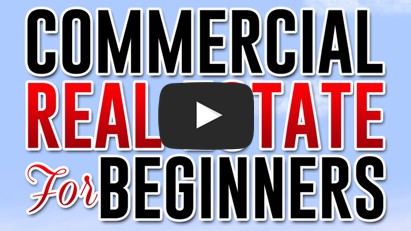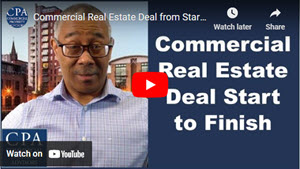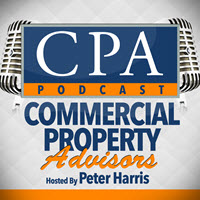Mobile Home Parks often fly under the commercial investing radar but they can be terrific investment opportunities for individual investors. Discover what every beginner commercial investor needs to know about investing in mobile home parks.
3 Misconceptions of Mobile Home Parks
1. Lazy People live in Mobile Home Parks: The truth is the average resident of a mobile home park is a hard-working individual with an average job, raising a family. There are also mobile home parks in Florida for retired seniors, and trendy parks on the beach in California. So the stereotype of trailer park trash just isn‘t true.
2. Mobile Homes can Pull Out at Anytime: It costs thousands of dollars to move a mobile home and most residents lack the funds for such an undertaking, so most homes stay put. In fact, it is much easier for a tenant of an apartment building to leave than a tenant at a mobile home park.
3. No Loans for Mobile Home Parks: Many investors believe this misconception, but the reality is there are several loan options for mobile home parks. In fact, banks like financing mobile home parks because out of all the commercial loans, mobile home parks have the lowest default rates. I prefer to use creative financing strategies, but you can get traditional financing for mobile home parks.
2 Types of Mobile Home Parks
Land Only: In this scenario you own the land, dividing it into mobile home lots and are leasing them to tenants. You are responsible for maintaining the facilities such as roadways, amenities and utilities. The tenants rent the lot but own their mobile homes and are responsible for the maintenance of their homes
Land and Park Owned Homes: In this case you would own both the land and the mobile homes and lease them to tenants, much like an apartment building. You are responsible for managing and maintaining everything.
4 Reasons to Invest in Mobile Home Parks
Growing Demand for Affordable Housing: There is a tremendous need for affordable housing in America and with rising inflation that need is growing. Even without these factors, there is always a need for housing for the segment of the population with lower incomes.
Stable and Predictable: There is a misconception that mobile home parks are transient. The reality is that the majority of the mobile homes delivered to lots twenty years ago are still there. As mentioned above, moving a mobile home is very costly to do.
Limited Competition for New Parks: Mobile home parks are at the bottom of the list for development in many communities. Some even have zoning laws against them because of their reputation. So there is little supply but high demand, which means you have limited competition.
Potential for Higher Returns: Owning a land only mobile home park has potentially higher returns than owning an apartment building because your operating expenses are considerably lower. You are not maintaining the infrastructure of a building, plus upkeep of the units and all the appliances. Your only expenses are maintaining the lots and land.
What to Avoid in a Mobile Home Park Deal
Park Owned Homes: Stick with the simplicity of owning land only mobile home parks. The beauty of mobile home parks is the low operating expenses. If you have park owned homes, you now have a depreciating asset that requires continuous maintenance and upkeep.
Hurricane Zones: As an apartment investor, if a hurricane blows through and causes damage, the insurance will cover the costs of repair or replacement. However, if you have mobile home investments and a hurricane destroys the homes on your lots owned by the tenants, you are left with nothing. Your insurance will not cover the mobile homes and often tenants have insufficient replacement insurance.
Operating Permit Status Issues: This is like a certificate of occupancy for a home or apartment that affirms the building meets housing standards and codes. The Operating Permit includes things like how many lots are allowed and utility standards. You need to know the status of the operating permit and when it expires. Once you purchase the property the onus is on you if there are any law or code violations so it is important to know the status of the operating permit before you purchase.
What to Look for in a Mobile Home Park Deal
Growing Population: The property needs to be in an area that has a growing population or at minimum a stable one. Remember, you can fix a property but you can‘t fix an area.
Avoid A-Class Parks: The name of the game in mobile home park investing is affordability. Your mobile home park needs to be a clean, cheap place to live. That will keep your tenants consistent. People with higher incomes have more options available to them and more incentives to leave.
Seek Out Mom n Pop Parks: These mobile home parks are owned by individual owners, rather then large corporations. You want to pursue mom n pop deals because deals from larger institutions will be too expensive and your cashflow will be too low.
Minimum 10% Cap Rate: You need at least a 10% cap rate going into the deal. Meaning the numbers given to you must reflect at least a 10% cap rate, nothing lower.
Upside Potential: The best deals allow for easy rent increases and cost reduction options such as improving utility costs or passing some of the utility costs to the tenants.
3 Ways to Finance Your First Mobile Home Park
Bank Financing: This is the traditional way to finance your mobile home park investment using a bank loan. Expect to put a down payment between 30-40% with interest rates similar to other commercial residential loans, amortized over 20-30 years. So the rates are fairly good. However, as with any conventional commercial real estate lending program, the banks will look at:
- Park income and expenses for the last three years
- The condition of the park and where it is located
- Your credit rating
Seller Financing: This is one of my favorite way to finance commercial real estate because you can be creative with the terms and make it a win-win situation for everyone involved. The down payment is usually lower, 10 to 20% with terms. About thirty percent of the parks are owned debt-free, so the sellers are extremely flexible. They can be the bank for you, and you can close the deal quickly with minimal costs.
Seller Financing with Note Assumption: This means the seller has a mortgage on the property but the mortgage can be assumed by you. There are two ways this is done. You can pay the equity and assume the mortgage through traditional financing or you can assume the mortgage using seller financing by leasing the property using what is called a Master Lease Agreement. The Master Lease Agreement is a terrific creative real estate financing strategy.




